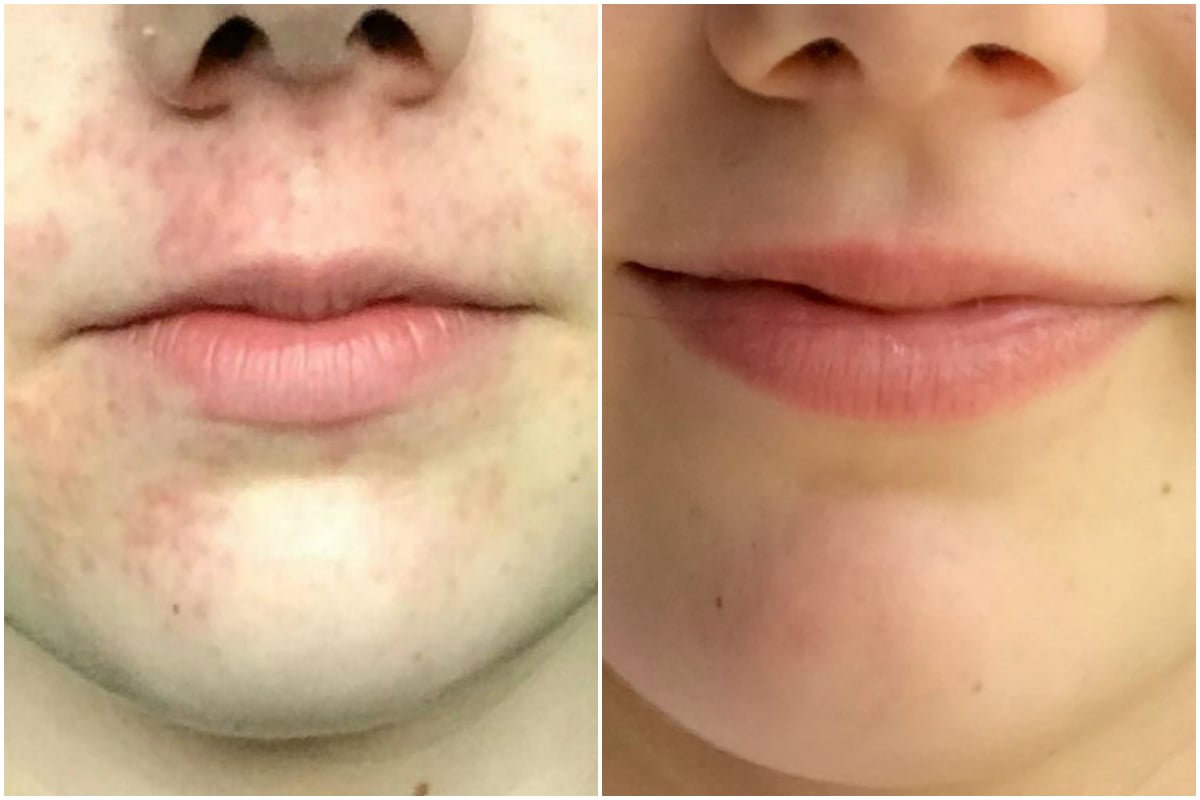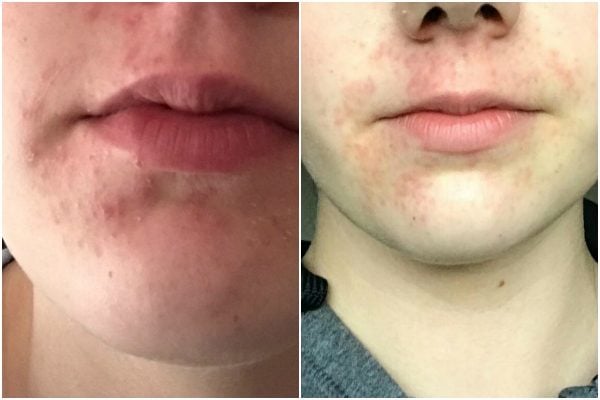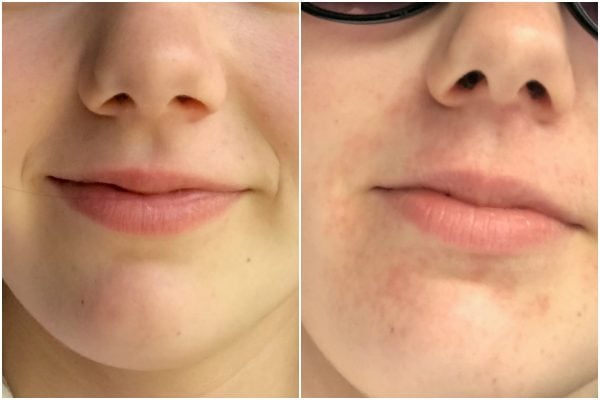
“I didn’t want to look at myself in the mirror,” 18-year-old Ella confessed after a recent experience with a severe case of eczema.
The uncomfortable at best, and painful at worst, recurring, non-infectious, inflammatory skin condition had suddenly spread all over her face. And the Year 12 student from Melbourne was struggling to cope.
“The stress of the start of Year 12 made my skin change from completely normal, to suddenly being very reactive to things,” Ella told Mamamia.
“I started getting spots of eczema on my face, then they developed into patches.
“At the worst of it, it was like a rash on my face, with blistering and peeling around my mouth and nose, then onto my cheeks.”

Ella admitted that she became very self-conscious about her face.


Top Comments
I went on an all-out hunt for something to clear up eczema on my face. It made my face dry and red which resulted in me being very self-conscious without makeup. As a mother and a business owner, I don’t usually have time for make-up. Foderma serum inside 24 hours progressed my face 85%. After the second day, it turned into absolutely long gone. I take advantage of it each night time as a moisturizer. You don’t must use loads a little bit goes a protracted way there for this bottle will final you a long term. You couldn't ask for more bang for your dollar! I recommend Foderma serum to anybody with eczema.